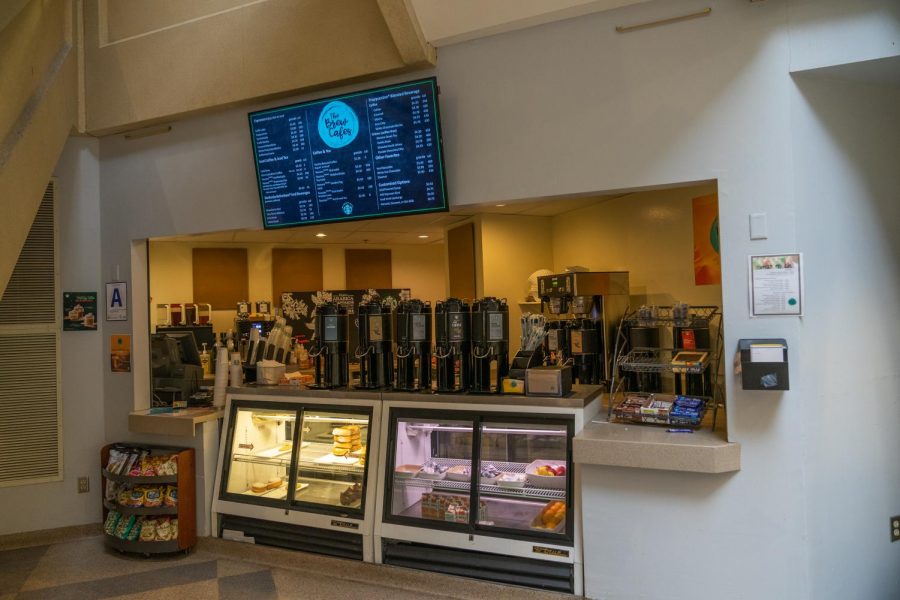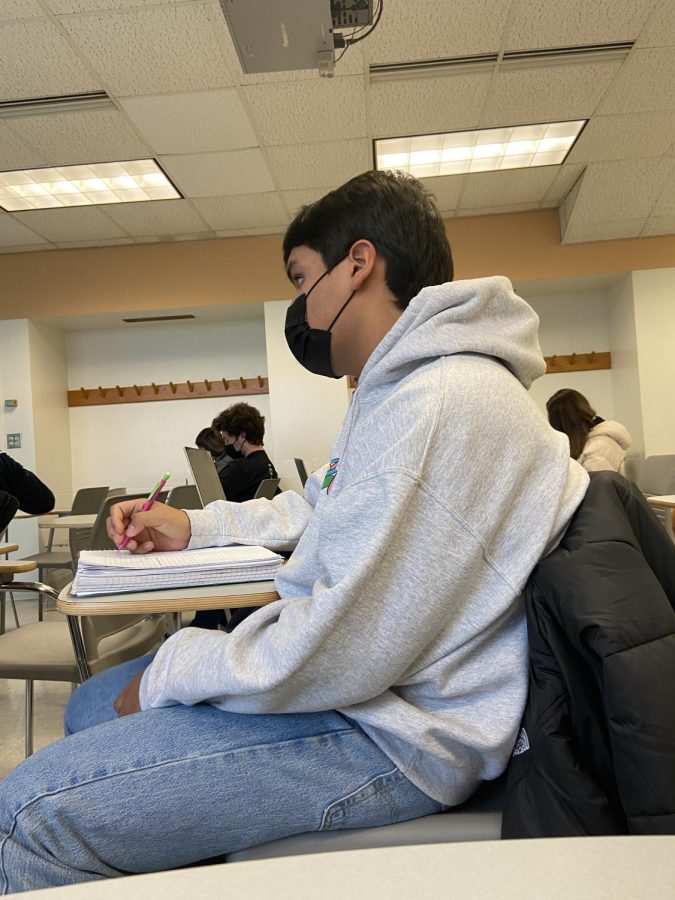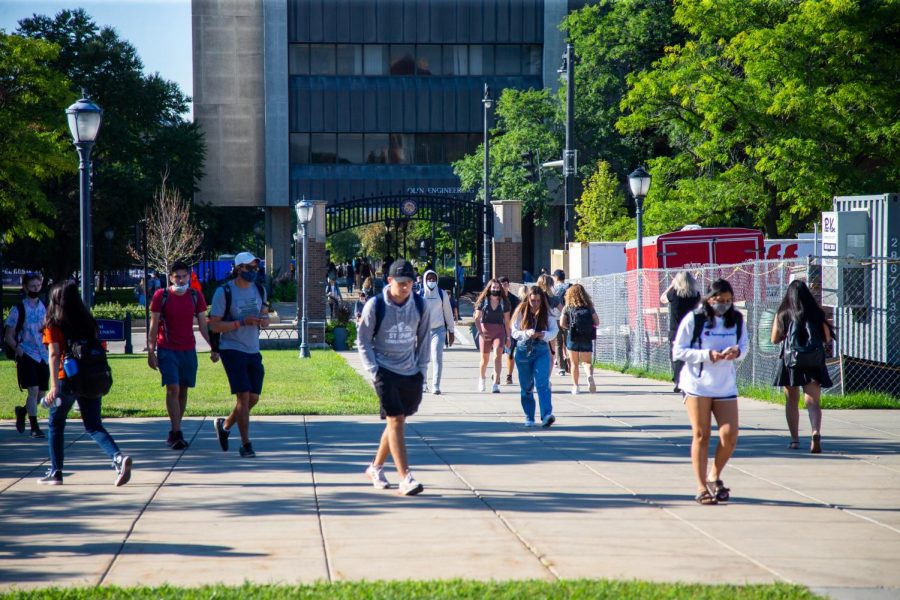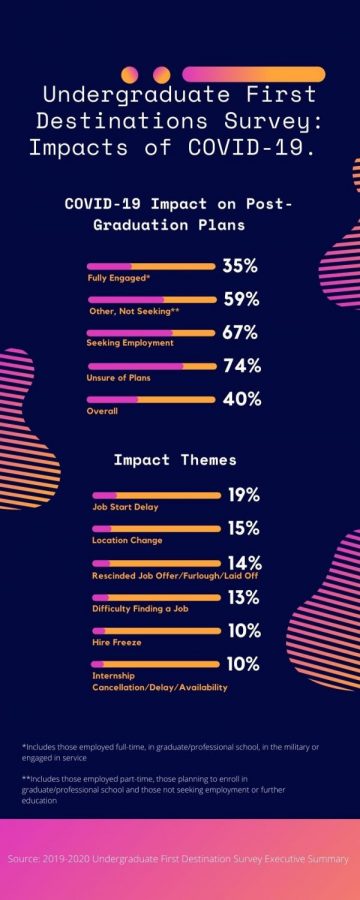With the recent decision to suspend in-person classes as well as the majority of university events and functions for the rest of the semester, many students are left without their regular on-campus jobs and sources of income.
Many students, like Will Wightkin, a sophomore in the College of Arts & Sciences, were instructed by the university to not come to work. Wightkin is a worker at the Straz Tower dining hall.
According to Marquette’s COVID-19 frequently asked questions page, those “for whom it is not critical to work on campus should not be working on campus.” However, students who have a need to work were advised to contact their supervisor about working remotely or being temporarily reassigned. No specific criteria was defined for what jobs on Marquette were essential
“I really rely on my job to help me pay off my student loans and earn extra income while studying,” said Morgan Panzenhagen, a first-year in the College of Communication and barista at The Brew Cafe. “It’s been tough enough without the money.”
Claire Conger, a senior in the College of Health Sciences, works in the stockroom in the chemistry labs. She said she usually relies on her income to cover various expenses.
“Working on campus is important to me because I had a job since I was 16,” Conger said. “I’ve been raised to be independent and financially accountable.”
Some students also rely on their paychecks to pay for things such as meal plans, like Mitch Weigel, a sophomore in the College of Arts & Sciences and student security guard at the Haggerty Museum of Art.
Students who receive pay through the federal work-study program and “worked regularly this semester” will continue to be paid, per guidance from the federal government, Annette D’Amato, a student employment coordinator in the Office of Student Employment Services, said.
Federal work-study, as defined by the Federal Student Aid website, provides part-time jobs to undergraduate students with financial need. In return, this allows the opportunity to potentially pay off tuition, loans, and room and board payments. Federal work-study jobs are available in nearly every department at Marquette.
Payment totals will be decided on “previously worked hours” of the spring semester as well as students’ “maximum spring Federal Work-Study eligibility,” according to D’Amato’s email.
The continuation of work-study pay has provided relief for students like Tess Grimes, a junior in the College of Health Sciences and work-study recipient.
“So far, I do not have concerns about not being able to work,” she said. “(Marquette) said they’d provide aid with those whose jobs are part of the federal work-study program.”
D’Amato said in an email sent to all student workers that students can look on Job Connection to “apply for jobs that are deemed critical for business continuity” both on and off campus.
Some of the on-campus jobs listed on Job Connection include student groundskeeper, student custodian and general maintenance helper to residence life.
For some students, being unable to work has caused other issues alongside their financial worries.
Panzenhagen said she is missing potential connections that she could’ve made while at her job.
“It helped me make friends with other students and gave me a sense of community,” Panzenhagen said. “I’m afraid that these connections are going to be really hard to reestablish after so much time away.”
Along with working at the Straz Tower Dining Hall, Wightkin works as a research assistant for the MU 4 Gold undergraduate research program. MU 4 Gold is a research program that allows undergraduate students to “engage in the process of research and discovery with Marquette faculty as soon as they arrive on campus” according to its webpage.
“My main concern is the loss of income and the loss of hands-on experience with research,” Wightkin said. “I intend on doing research as my career, so gaining experience is very important to me and my future prospects.”
Some students who worked on campus during the summer previously are not expecting to work during the summer, after the announcement that all summer courses will be online.
“I did ask if I could still work while classes went in March online,” Weigel said. “But I got an email saying my summer classes will be online, so I’m sure I’ll get an email soon saying there will be no summer employment either.”
The Office of Student Employment has yet to announce whether certain on-campus employment opportunities will be suspended during the summer.
Some student jobs will remain during the summer, but in an online format. SPARK will be held online this summer, and all students who signed up to be SPARK leaders will have jobs, coordinator for new student and family programs Katie Harrington said.
Some schools in Wisconsin are compensating student workers in a different way from Marquette. According to an article from USA Today, student workers at the University of Wisconsin-Milwaukee will receive a one-time $200 payment. UWM has over 3,000 total on-campus student employees.
The University of Wisconsin-Madison is also compensating its student workers by paying them 10-hour work-week wages until the end of the semester.
This story was written by Benjamin Wells and Alexa Jurado. They can be reached at benjamin.wells@marquette.edu and alexa.jurado@marquette.edu.












